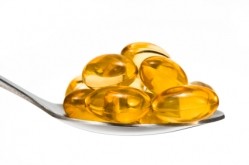Scientists attack proposed EU omega-3 DRVs

The 22 omega-3 experts said the daily intake recommended level of 250mg was less than half of the 500mg+ daily level recommended by a host of international research groups and government bodies, they said.
In addition, the draft recommendation references plant-sourced ALA (alpha-linolenic acid) as being a viable pre-cursor of EPA (eicosapentaenoic acid) and/or DHA (docosahexaenoic acid), something the scientists vehemently disagree with.
They also criticise the draft for failing to mention omega-3 derived cognitive health benefits.
“EFSA should reconsider its conclusions and advice on omega-3 fatty acids afresh, right from the beginning,” the scientists wrote in an official submission to EFSA.
Now that the public consultation period is closed (as of yesterday), it passes to other arms of the EU for further consideration. The recommendations will act as a reference point for imminent omega-3 labelling rules, the scientists also oppose on similar grounds.
For more on that click here.
DRV debate
The scientists hold the same fundamental position as most of the marine-sourced omega-3 industry, which has been less vocal in its criticism as it has tended to take a pragmatic approach that it is better to have an imperfect rule that can be amended later, than no rule at all.
The industry is of the view that the absence of some kind of guide is more detrimental to business than the imposition of a bottom-of-the-range level, as looks likely. That said, industry lobbying for higher levels continues unabated from the likes of the Global Organization for EPA and DHA (GOED).
“The report will be the foundation for all future EC policies that in any way relate to fats,” said the head of the scientific consortium, Jack Winkler, director of the Nutrition Policy Unit at London Metropolitan University.
He criticised European authorities for scheduling a consultation period over the summer break. “None of our members, or their many associates, all well-known specialists in lipids, received any notice of the publication or consultation, nor any request for comment,” he said.
Response in detail
In response to EFSA’s assertion that, "The human body can synthesize EPA and DHA from alpha-linolenic acid", the scientists counteredt: “the conversion rate is so low, especially for DHA, that consumers would receive little or none of the health benefits associated with DHA.”
They noted this was the official position of International Society for the Study of Fatty Acids and Lipids (ISSFAL).
They pointed to mental health benefits from foetal brain development to warding off Alzheimer's disease and recommended US Food and Drug Administration research into “certain neurodevelopmental and cardiovascular endpoints" be tabled.
EFSA should consider the effect of omega-3/omega-6 ratios was also noted, noting increased consumption of omega-6 in western diets was having a detrimental effect on health.
The group of scientists includes Professor Michael Crawford, director of the Institute of Brain Chemistry and Human Nutrition at London Metropolitan University; Peter Clough, technical director at Efamol Limited; Prof Claudio Galli, professor of pharmacology at the University of Milan; and Prof Andrew Sinclair, professor of human nutritionat Deakin University in Australia.














